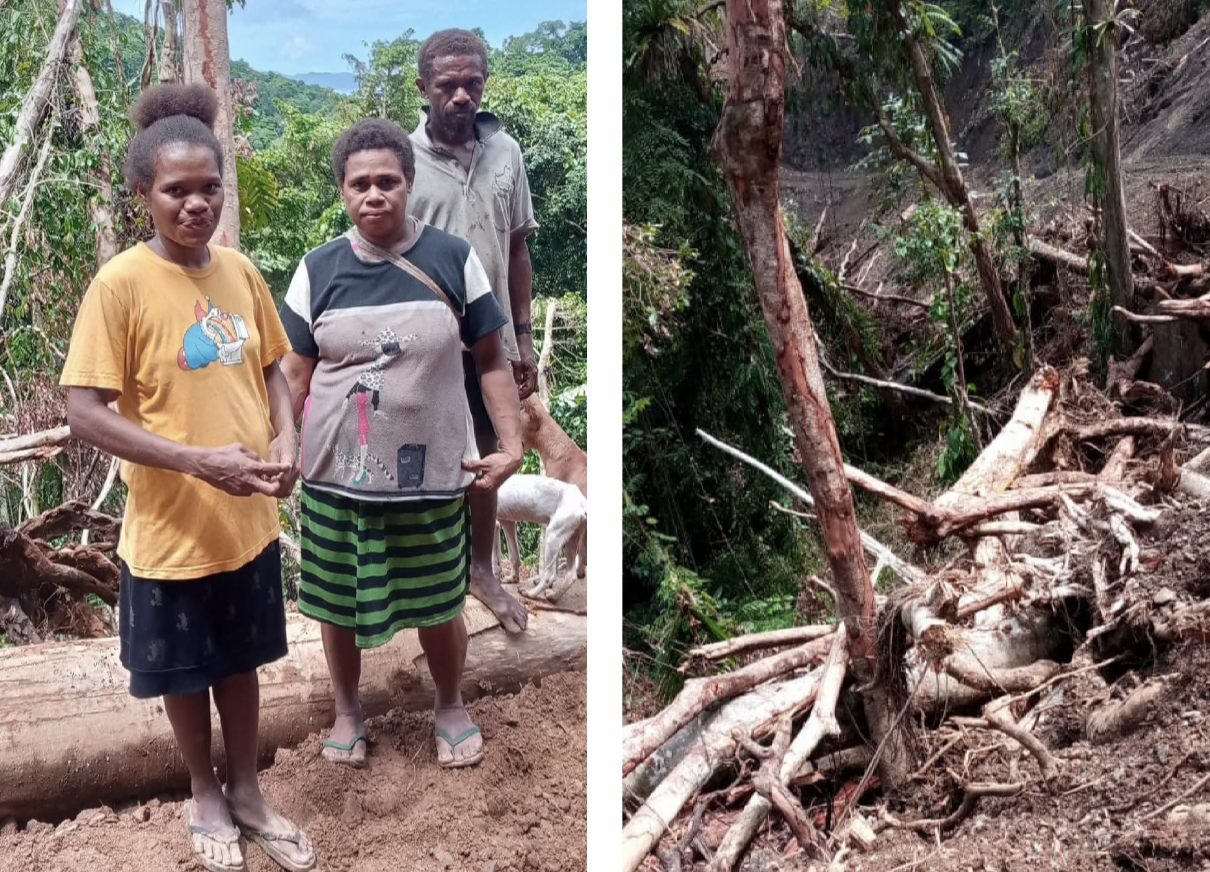
Key points:
The need to legally protect Yato forests has become even more urgent this month as
women and children from the Nasuahu community in East Makira came face-to-face
with logging destruction in their food gardens and forest.
Led by Yato Forest Ranger Roselyn Rahea and her aunt, Daisy Muri, women and
children from Nasuahu blocked alleged illegal loggers entering their village, garden
areas and the adjacent Yato forest.
Unfortunately, the logging company had already significantly damaged land belonging
to the Nasuahu people before they could be stopped, including clearing forest food
gardens the village population depend on, and cutting trees just outside the proposed
protected area on land where the timber rights are under scrutiny.
The Nasuahu womens’ actions received the attention and support of the Makira Ulawa
Council of Women who met in Kirakira late last week to discuss the events and give
voice to the issues faced by women and children across Makira who are often
disadvantaged by logging operations.
Nasuahu is one of five communities that form the Yato Conservation Area project
which is working towards obtaining official protected area status for almost 12,000
hectares of rainforest in East Makira. Part of this forest will form a conservation
carbon project which is in development as an alternative to logging for the
communities.
Women from the Nasuahu community in East Makira have been faced with the very real threat logging brings to their forests and livelihoods. Led by Yato Forest Ranger Roselyn Rahea and her aunt, Daisy Muri, women and children from Nasuahu recently came together to block alleged illegal loggers entering their village, garden areas and the adjacent Yato forest.
As the foreign-owned logging company arrived in Nasuahu — having ignored earlier attempts by the community to block their access using sticks and ropes — Roselyn mobilised the women of the village to take action, forming a human blockade.

“There were no men leaders at the community since they had left for Honiara to join the Catholic Fathers’ program,” reported Martha Saunana from Live and Learn Solomon Islands after speaking with Roselyn and Daisy, and hearing their story.
“The company’s responses to earlier attempts by other community members to block entry were threatening with the mention of police, but the women persisted, made a call to an Elder in Kirakira, John Murray, and the Provincial Premier, Stanley Siapu, for help and managed to stop the loggers,” says Martha.
Nasuahu is one of five communities that form the Yato Conservation Area project which is working towards obtaining official protected area status for almost 12,000 hectares of rainforest in East Makira.
The protected area is expected to be granted this year, and part of this forest will form a conservation carbon project which is in development as an alternative to logging for the communities — work currently supported by Live and Learn Solomon Islands and Nakau.
Roselyn was one of the forest rangers who received forest ranger and monitoring training as part of the carbon project development. This training gave her the knowledge and confidence to speak out when she saw the forest under immediate threat.

Unfortunately, the logging company had already significantly damaged land belonging to the Nasuahu people before they could be stopped, including clearing for logging roads through forest food gardens the village population depend on, and cutting trees just outside the proposed protected area on land where the timber rights are also under scrutiny and contested.
“I felt saddened by the damaged food gardens we greatly depend on,” said Roselyn.
“We saw the destruction of our resources as something so dear and important to us just as when our beloved young are unwell or sick — there is both the feeling of fear, worriedness and eagerness to move forth in communicating with the company workers to stop working.”

Daisy, who has been alongside Roselyn throughout, says it’s very difficult to see the hard work the Nasuaha women had put into preparing the soil, the time it took them as farmers to start growing their crops and the time it took daily to work in the gardens and feed their families all totally destroyed.
“This means shortage of food when those crops were due to be harvested and, most importantly, we now have to start all over again,” she says. But exactly where is a challenge since the logging company completely devestated their gardening site.
The Nasuahu womens’ actions have received the attention and support of the Makira Ulawa Council of Women who met in Kirakira late last week to discuss the events and give voice to the issues faced by women and children across Makira who are often disadvantaged by logging operations.
The Women’s Council President Edith Kaoho told Solomon Islands media outlet SBM that “logging-related issues that involve women and girls is a big concern as logging exploitation is beyond control in this province.”

The meeting brought together a wide range of stakeholders in support of the women and Nasuahu — provincial government representatives, women church leaders, women elders residing in and around Kirakira and community leaders, the Family Support Center and Save the Children, police, Nasuahu representatives and the Yato Conservation Protected Area Management committee members — ensuring the challenges facing Nasuahu and other communities are widely understood.
As discussions continue to determine what immediate protections can be put in place, the need to officially protect Yato forests has become an even more urgent one.
Live and Learn Solomon Islands and Nakau continue to support the Yato communities to reach this milestone as soon as possible so the community can legally protect the forest and continue working towards their forest carbon project.
Ends]
